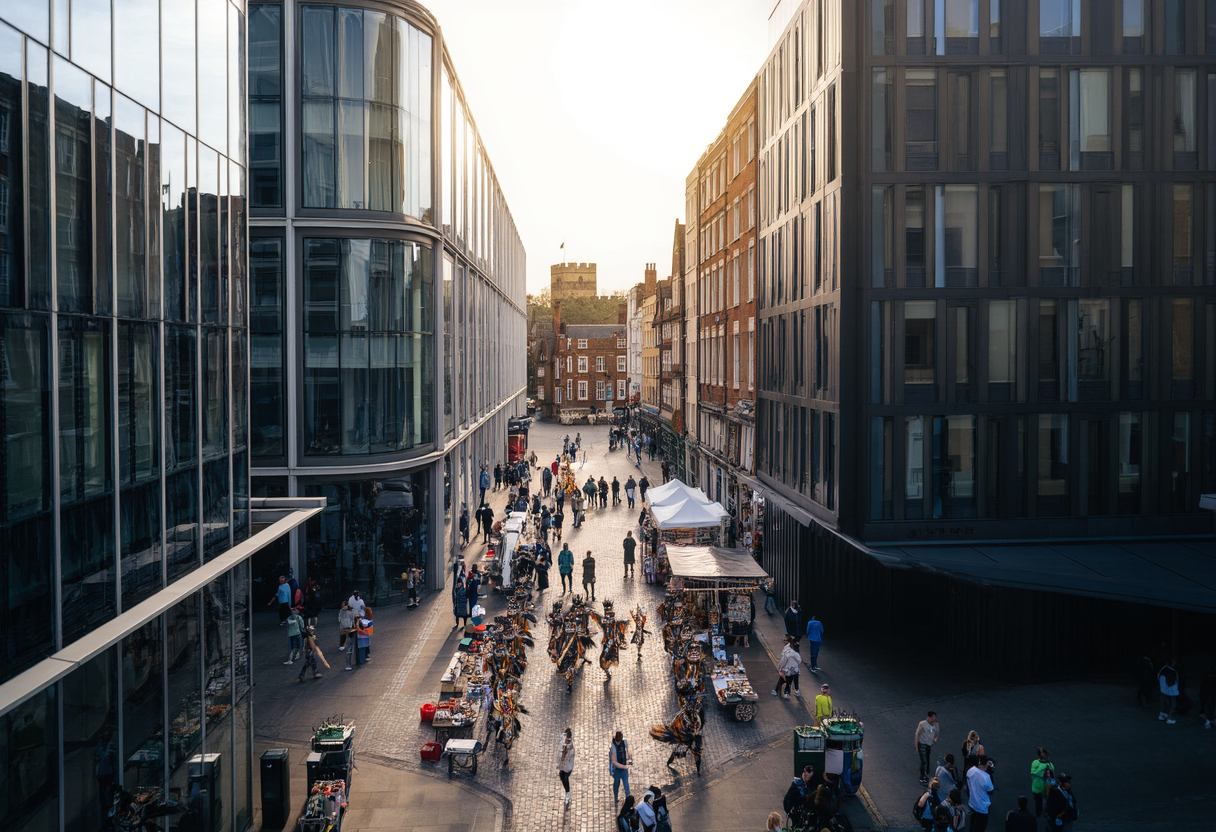Urban Tourism: The Key Role of Local Cultures in City Travel
Urban Tourism thrives on the richness of local cultures that enhance travel experiences. This article explores how cultural heritage influences Urban Tourism, the importance of community engagement, and strategies for maintaining authenticity while embracing modernization in cities.
The Essence of Local Cultures in Urban Tourism
Urban Tourism is deeply intertwined with local cultures, which provide the essence that attracts tourists to urban spaces. Every city has its own unique set of traditions, foods, festivals, and histories that make it distinct. These cultural elements are often what compel travelers to explore urban destinations, where they expect to immerse themselves in the local way of life. As Urban Tourism continues to grow, cities must recognize the value of their cultural assets and ensure they remain integral to the travel experience. The authenticity of Urban Tourism thus relies heavily on a city’s commitment to preserving and celebrating its cultural heritage.
Cultural Heritage and Its Impact on Urban Tourism
Cultural heritage serves as a powerful draw for Urban Tourism. Tourists often seek out local art, historical sites, and traditional cuisine, which are markers of a city's identity. In this regard, Urban Tourism can significantly bolster the local economy, enabling cultural sites to flourish and artists to thrive. However, as Urban Tourism increases, tensions may arise between preserving cultural integrity and accommodating tourism demands. Therefore, it’s crucial for urban planners to implement policies that support local cultures while managing the influx of tourists. Sustainable practices not only benefit Urban Tourism but also reinforce local pride in these cultural treasures.
Community Engagement in Urban Tourism
Engaging the local community is another essential component of successful Urban Tourism. Travelers increasingly desire authentic experiences that involve interaction with locals, away from stereotypical tourist activities. Urban Tourism can facilitate community projects, cultural exchanges, and local-guided tours that enrich the travel experience, emphasizing how integral community involvement is. By fostering partnerships with local groups, cities can create a more vibrant and meaningful Urban Tourism sector. This engagement not only enhances visitor experience but also ensures that local voices are heard and represented in the tourism narrative.
Challenges of Balancing Tradition and Modernization
One of the greatest challenges in Urban Tourism is balancing the preservation of traditional culture with modern needs and attractions. As cities evolve, they face pressure to innovate and adapt to the preferences of modern travelers. However, the loss of cultural identity can lead to a homogenous travel experience. Cities must strive to blend traditional elements with contemporary expectations effectively. Innovative approaches such as integrating technology into cultural presentations can keep Urban Tourism dynamic while respecting local heritage. This delicate balance inspires a refreshed Urban Tourism experience that resonates with both new and returning visitors.
Innovations in Urban Tourism Destinations
Innovative strategies in Urban Tourism are emerging as cities recognize the importance of adaptation. Cities are incorporating augmented reality experiences that allow visitors to see historical events through technology or offering digitally-guided cultural tours that highlight local stories. Such innovations not only enhance the tourist experience but also reinforce the relationship between Urban Tourism and local culture. By embracing new technologies, cities can create memorable experiences that attract diverse visitor demographics while celebrating the rich narratives of the community.
Conclusion: Protecting the Cultural Heart of Urban Tourism
In conclusion, Urban Tourism relies heavily on the richness of local cultures. It is essential for cities to develop policies that protect and showcase these cultural elements while adapting to modern tourism dynamics. With challenges like over-tourism and cultural dilution on the rise, community engagement and innovative solutions will be pivotal in preserving the cultural heart that defines Urban Tourism. Thus, ensuring that future travelers can continue to enjoy authentic experiences in the cities they discover.
